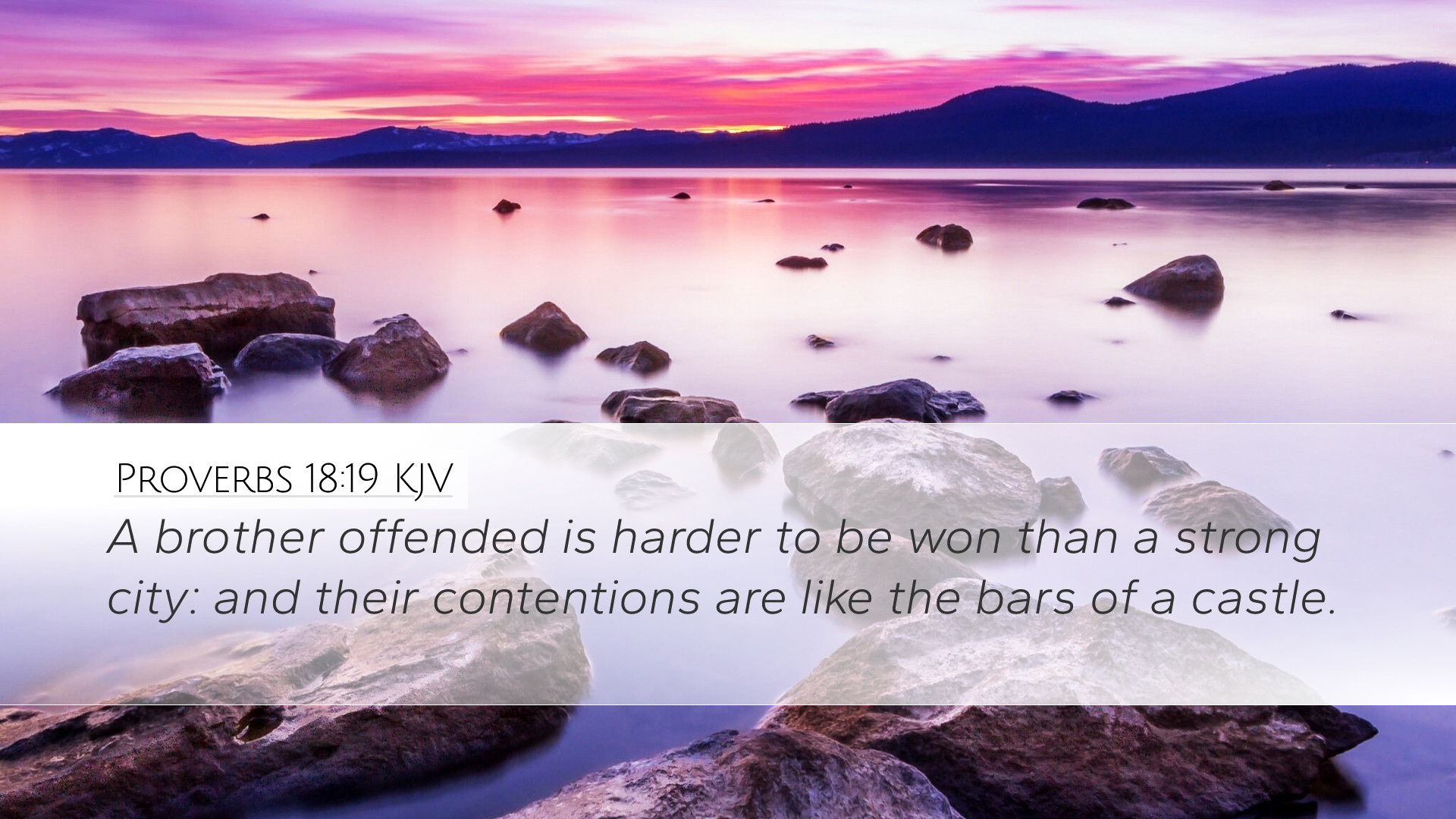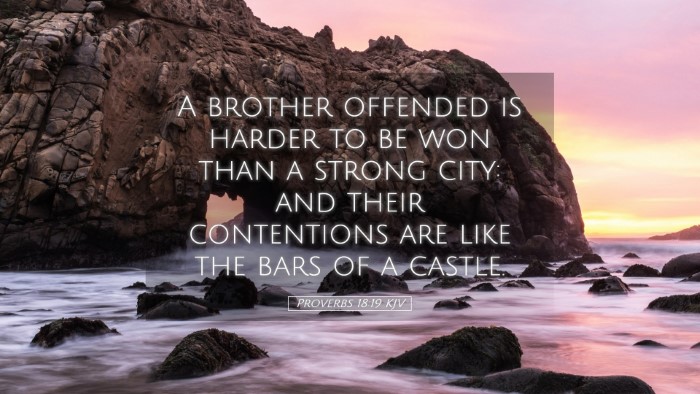Commentary on Proverbs 18:19
Proverbs 18:19 states, “A brother offended is harder to be won than a strong city: and their contentions are like the bars of a castle.” This verse encapsulates the profound nature of interpersonal relationships and the challenges inherent in reconciliation. It draws attention to the sensitivity of human emotions, particularly in familial and community dynamics.
Contextual Overview
Proverbs is a collection of wise sayings attributed mainly to Solomon, focusing on practical wisdom for daily living. This particular verse stresses the difficulties encountered when relationships are strained, highlighting the importance of managing conflicts effectively.
Insights from Matthew Henry
Matthew Henry emphasizes the metaphorical significance of a ‘strong city’ in this verse. He reflects on the fortified nature of a brother's heart when offended. Henry notes that such an offense can create deep emotional barriers, akin to the fortified walls of a city that are difficult to breach. The contention arising from offenses can lead to a state of enmity and bitterness that further complicates reconciliation.
He suggests that the pride of man and the hurt feelings that arise from being offended can seal off the heart, making it resistant to reconciliation. Henry's commentary encourages a spirit of humility and understanding, urging individuals to seek peace rather than promote conflict.
Insights from Albert Barnes
Albert Barnes builds upon the metaphor introduced by Henry, asserting that the friendships between people can be incredibly intricate. He observes that an offended brother tends to guard his heart zealously, just as one would a city besieged by enemies. Barnes posits that the emotional walls erected by offense are fortified by resentment, making reconciliation exceedingly complex.
- Restoration Challenges: Barnes elaborates on the difficulty of restoring relationships once contentious issues have arisen. The emotional fallout can leave wounds that keep individuals apart, necessitating wisdom in navigating such reparative processes.
- The Role of Communication: He underscores the necessity of clear and honest communication in addressing grievances, urging individuals to approach offenses with sincerity and a readiness to forgive.
Insights from Adam Clarke
Adam Clarke provides a more nuanced exploration of the concept of offense within relationships. He emphasizes the human tendency to take offense and to harbor grievances, which can lead to a breakdown of fellowship and trust. Clarke also notes that the passionate nature of human emotion often blinds individuals to the need for reconciliation.
Clarke advises that addressing offenses directly and compassionately is vital for restoring relationship harmony. He encourages readers to bear in mind the fragility of relationships and the importance of maintaining a spirit of forgiveness and mutual understanding.
Thematic Considerations
This verse embodies several key themes relevant to pastoral care and theological reflection:
- The Impact of Offense: The emotional repercussions of offenses must not be underestimated; they can completely disrupt relationships and communities.
- Forgiveness and Reconciliation: The importance of forgiveness is accentuated, as it is a foundational Christian principle essential for restoring relationships.
- Wisdom in Conflict Resolution: Understanding the dynamics of human emotion and conflict is necessary for effective pastoral care and support.
Conclusion and Application
Proverbs 18:19 serves as a poignant reminder of the complexities involved in human relationships, particularly the challenges posed by offense. For pastors, students, and theologians, this verse emphasizes the need for grace, compassion, and deliberate efforts towards reconciliation. Understanding the emotional barriers that follow offenses can lead to more meaningful approaches in ministry and interpersonal interactions.
As communities of faith engage with this verse, they are called to foster environments of open communication and collective healing. Encouraging forgiveness not only within the church but also within broader societal contexts can be transformative, allowing the church to reflect the character of Christ in its dealings with one another and the world.


